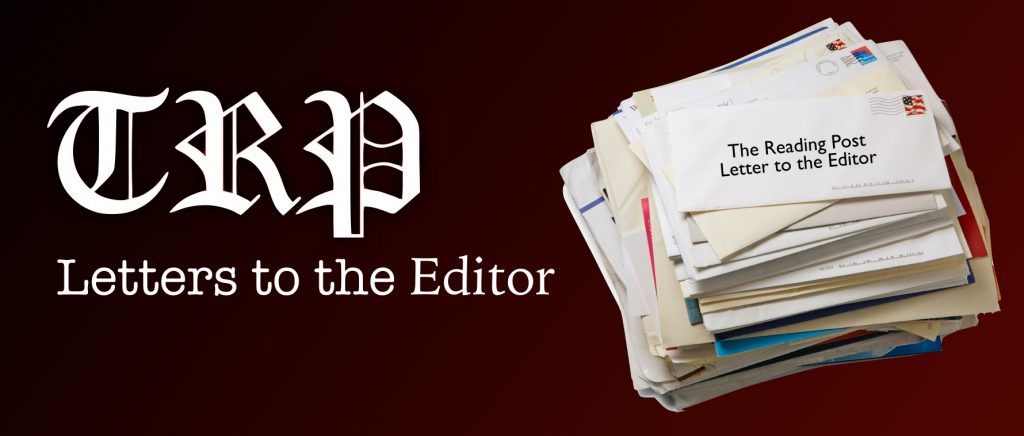
The Reading Post accepts Letters to the Editor. All letters must be signed. The Reading Post reserves the right to edit or not publish any letters received. Letters do not represent the views or opinions of the Post. editor@thereadingpost.com
Re: Tuesday night April 14, 2020, Select Board Meeting (via Zoom and simulcast on RCTV)
Thank you Reading Select Board and RCTV for the virtual meetings broadcast for Reading citizens to view the functioning of local government in real time. For these meetings however, if email comments during the discussion of agenda items are permitted, all emailed input needs to receive equal treatment.
At the beginning of public comment regarding the April 14 Recall Election agenda item, Chair Mark Dockser stated:
“I think for public meetings the requirement is that when someone wants to make a statement they are more than welcome to, but they need to state their name and address.”
I submitted an email comment with my name and address to selectboard@ci.reading.ma.us at 9:47 pm during the discussion of the Recall Election agenda item. Chair Dockser chose to ignore my input, but fortunately, thanks to Vice Chair Landry, the omission was noted. Chair Dockser, nevertheless, stated my input was not under the purview of the Board and it was not read aloud nor the content discussed.
After watching the meeting again on RCTV’s YouTube channel, I realized that, while other comments were also ruled out of order or not under the purview of the Select Board by Chair Dockser, all of these other comments were read aloud during the meeting.
My email sent at 9:47 pm during the Recall Election agenda item discussion reads as follows:
William Bruce Cooper
Covey Hill Rd, Reading
At a minimum Vanessa Alvarado should be required to certify that she has creditable supporting evidence for each of the challenges. Whether she certifies or not, the Board of Registrars should select a statistically valid random sample of challenges for Vanessa Alvarado to provide creditable supporting evidence for the samples. If the sample, when extrapolated over the entire population, indicates that enough of the challenges are valid to lower the valid signatures below the required 2000, then the matter should be dropped. If the reverse is true (not sufficient certifiable supporting evidence), the recall election should be set.
I also sent these comments to the Board of Registrars for consideration.
Here are a few additional comments for the Board of Registrars and the Select Board to consider:
- Although Select Board Member Alvarado is not required to provide evidence supporting her challenges in advance of a public hearing, it is reasonable to request her to certify that she has creditable evidence supporting her challenges.
- If she refuses to certify, this refusal would be a basis for the Select Board to schedule the recall election without the need for a public hearing (which under the Town Charter is not required anyway).
- If she does certify, a statistically valid random sample would be more productive (and much safer) than holding a public hearing during the state of emergency.
- Based on the results of the sample extrapolated over all the challenges, the recall could be scheduled (if the sample indicates there are enough valid signatures), or dropped (if the sample indicates there are enough valid challenges to bring the total under the 2000 signatures required).
Going forward with virtual meetings, the Select Board needs to provide clear policies for how remote meetings are conducted, including emailed public input, and these policies need to be consistently applied.
William Bruce Cooper
Covey Hill Rd, Reading
